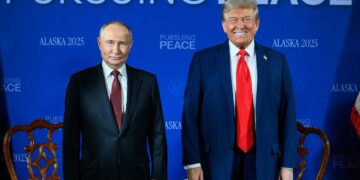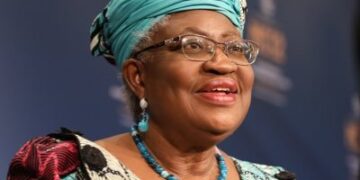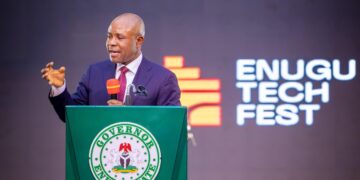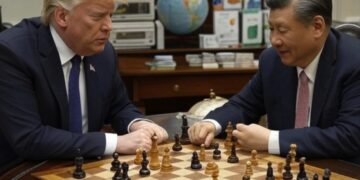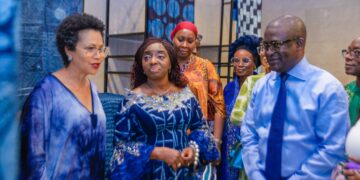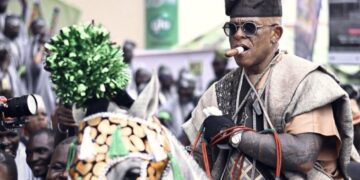For over half a century, Africa has been a testing ground for Western-style democracy—a system heralded as the pinnacle of governance, promising liberty, equality, and prosperity. Yet, as the continent marks significant milestones of independence—many nations celebrating 50 or 60 years since colonial rule ended—the evidence is stark: this imported model has largely failed to deliver on its promises. Instead of fostering stability and development, Western democracy has often entrenched poverty, exacerbated ethnic divisions, and perpetuated neocolonial exploitation. From Nigeria’s electoral crises to Kenya’s post-election violence, the narrative is consistent: a system designed in the West, for the West, struggles to take root in Africa’s diverse soils.
This article argues that Africa’s liberation from the shackles of Western failed democracy is not merely desirable but essential. It is a call to reimagine governance by drawing on the continent’s rich precolonial traditions, adapting them to modern challenges, and rejecting the one-size-fits-all approach imposed by former colonial powers and their successors. The stakes are high: with a youthful population exceeding 1.4 billion, abundant natural resources, and a growing global presence, Africa’s future hinges on finding a governance model that reflects its identity and aspirations.
The Historical Imposition: Democracy as a Colonial Legacy
To understand the failure of Western democracy in Africa, we must first trace its origins. The post-World War II era saw a wave of independence movements sweep across the continent, dismantling colonial empires. As European powers retreated, they left behind political structures modeled on their own—parliaments, constitutions, and multiparty elections. This was no accident. The departing colonizers, alongside Cold War superpowers, saw democracy as a tool to maintain influence, ensuring that newly independent states remained aligned with Western interests.
In 1960 alone, 17 African nations gained independence, adopting constitutions drafted in London, Paris, or Washington. These documents enshrined liberal democratic ideals—separation of powers, individual rights, and competitive elections—without regard for the continent’s sociocultural realities. Precolonial Africa was not a monolith, but it was characterized by decentralized systems of governance, consensus-based decision-making, and communal accountability. Kingdoms like Ashanti, Zulu, and Buganda thrived under rulers who balanced authority with community input, often through councils of elders or assemblies. These systems were supplanted by alien frameworks that prioritized individual votes over collective harmony.
The Cold War further entrenched this imposition. The United States and the Soviet Union vied for African allegiance, with the former championing democracy as a bulwark against communism. Aid and military support flowed to regimes that adopted multiparty systems, regardless of their efficacy. By the 1990s, the collapse of the Soviet Union ushered in a unipolar world where Western democracy became the sole prescription for legitimacy. International financial institutions like the IMF and World Bank tied loans to democratic reforms, compelling African states to comply or face economic isolation.
The Failures of Western Democracy in Africa
The results of this experiment are sobering. Across the continent, Western-style democracy has struggled to deliver stability, equity, or development. Several key failures stand out.
Electoral Dysfunction and Ethnic Polarization
Competitive elections, a cornerstone of Western democracy, have often deepened divisions in Africa’s multiethnic societies. In Kenya, the 2007 election sparked violence that killed over 1,200 people, driven by ethnic rivalries inflamed by political competition. Nigeria’s 2023 election, marred by allegations of rigging and voter suppression, underscored how electoral processes can become battlegrounds for power rather than mechanisms for representation. The winner-takes-all model alienates minorities, fostering resentment and instability.
Corruption and Elite Capture
Far from curbing corruption, democratic institutions have often enabled it. Elected leaders, empowered by centralized authority, exploit state resources for personal gain or to reward loyalists. In South Africa, the African National Congress (ANC), once a liberation movement, has faced scandals like the “state capture” saga under Jacob Zuma, eroding public trust. Transparency International’s 2024 Corruption Perceptions Index ranks many African democracies—such as Uganda and Cameroon—among the world’s most corrupt, despite their multiparty systems.
Economic Stagnation and Neocolonial Dependency
Western democracy has failed to break Africa’s economic dependence on foreign powers. Resource-rich nations like the Democratic Republic of Congo (DRC) remain impoverished, their wealth siphoned off by multinational corporations under the watch of elected governments. The democratic process, with its costly elections and short-term focus, diverts resources from development to politicking. Ghana’s 2020 election cost an estimated $100 million—funds that could have bolstered healthcare or education in a country where 30% of people live below the poverty line.
Erosion of Traditional Authority
The imposition of Western governance has sidelined indigenous systems that once ensured accountability. In Botswana, the kgotla—a traditional assembly—historically mediated disputes and advised chiefs, fostering consensus. While Botswana has adapted this into its democratic framework with relative success, most nations have not, leaving a vacuum filled by unaccountable elites. A 2023 Afrobarometer survey found that traditional leaders enjoy higher trust (68%) than elected officials (42%) across 34 African countries, signaling a disconnect between formal democracy and grassroots legitimacy.
Instability and Coup Proliferation
The fragility of democratic institutions has fueled a resurgence of military coups. Since 2020, Mali, Burkina Faso, Niger, and Gabon have seen elected governments toppled, often to public applause. These coups reflect frustration with democracy’s inability to address insecurity, poverty, and corruption. In Niger, the 2023 overthrow of President Mohamed Bazoum was hailed by citizens tired of a system that failed to curb jihadist violence or deliver basic services.
Why Western Democracy Fails: A Cultural and Structural Mismatch
The root of these failures lies in a fundamental mismatch between Western democracy and African realities. First, the Western model assumes a homogenous society with shared values, a luxury Africa’s diversity—over 2,000 ethnic groups and languages—does not afford. Majority rule, efficient in Europe’s nation-states, marginalizes minorities in Africa, where ethnic identities often outweigh national ones.
Second, Western democracy prioritizes individual rights over communal welfare, clashing with Africa’s collectivist ethos. In precolonial Igbo society, for instance, decisions emerged from village assemblies, not ballots, ensuring broad buy-in. The adversarial nature of multiparty politics undermines this harmony, turning governance into a zero-sum game.
Third, the infrastructure of democracy—independent judiciaries, free media, robust civil society—requires time and resources Africa was not given. Colonial powers left weak institutions, and postcolonial leaders, pressured to democratize overnight, lacked the capacity to build them. The result is a façade of democracy: elections occur, but power remains concentrated in unaccountable hands.
Finally, Western democracy serves Western interests. It integrates African states into a global order where they remain subordinate, their sovereignty curtailed by trade agreements, debt, and foreign military bases. Former Nigerian President Olusegun Obasanjo, speaking in 2023, argued that Africa “has no business adopting a system it played no part in designing,” a sentiment echoed by growing calls for an “Afrocentric” alternative.
Reimagining Governance: An African Renaissance
Liberating Africa from Western failed democracy demands a bold reimagination of governance—one that honors the continent’s past while addressing its present. This is not a rejection of democracy itself but of its Western incarnation. Below are pathways to an African-centric model.
Consensus-Based Governance
Drawing on precolonial traditions, Africa could adopt systems prioritizing consensus over competition. Economist George Ayittey proposes a National Council model, where representatives from ethnic groups, regions, and sectors deliberate until agreement is reached. A president, selected by this council, would govern with their input, reducing election costs and ethnic strife. Rwanda’s Gacaca courts, which resolved post-genocide disputes through community dialogue, offer a modern precedent.
Decentralized Power Structures
Centralized states, a colonial legacy, concentrate power and resources, fueling corruption and unrest. Federalism or confederation—tailored to local needs—could devolve authority to regions or communities. Nigeria’s six geopolitical zones, if empowered with fiscal autonomy, could better address local priorities than the current Abuja-centric system. Somalia’s semi-autonomous Puntland demonstrates how decentralization can stabilize fragile states.
Hybrid Leadership Models
Integrating traditional leaders into formal governance could bridge the trust gap. In Ghana, the Asantehene (Ashanti king) wields moral authority alongside elected officials, stabilizing society. A hybrid system could formalize such roles, with chiefs or elders advising parliaments or serving as a second chamber, ensuring cultural continuity and accountability.
Economic Sovereignty as a Democratic Pillar
True liberation requires economic independence. Governance must prioritize resource control, industrialization, and intra-African trade over Western aid. The African Continental Free Trade Area (AfCFTA), launched in 2021, is a step toward this, potentially boosting GDP by $450 billion by 2035. Democratic legitimacy should hinge on delivering prosperity, not just holding elections.
Technology-Enabled Participation
Africa’s youth, 70% of whom are under 30, demand inclusion. Digital platforms could enable direct participation, bypassing corrupt intermediaries. Kenya’s Ushahidi, a crowdsourcing tool, has tracked election fraud and disasters, showing how technology can amplify voices. A digital kgotla could modernize consensus-building, blending tradition with innovation.
Case Studies: Lessons from the Continent
Several African nations offer insights into alternative governance.
Botswana: Blending Tradition and Modernity
Botswana’s success—stable since 1966, with a GDP per capita of $8,000—stems from integrating the kgotla into its parliamentary system. Traditional leaders mediate disputes and advise policy, fostering trust and continuity. Its diamond wealth is managed for public good, not elite enrichment, proving democracy can work when adapted to local roots.
Rwanda: Authoritarian Efficiency
Under Paul Kagame, Rwanda has achieved remarkable growth—averaging 7% annually since 2000—through centralized control and grassroots participation via Imihigo (performance contracts). Critics decry its authoritarianism, but supporters argue it reflects an African model prioritizing development over multiparty chaos. Could this be democratized without losing efficacy?
Senegal: Democratic Resilience
Senegal’s 2024 election, where youth and civil society thwarted a constitutional crisis, showcases democracy’s potential when rooted in local agency. Its Sufi brotherhoods, wielding soft power, complement state institutions, suggesting a hybrid path forward.
Challenges to Liberation
This reimagination faces hurdles. Entrenched elites, benefiting from the status quo, will resist change. External powers, from the U.S. to China, may oppose systems that threaten their influence. Funding new models, amidst debt burdens, is daunting—Africa’s external debt hit $1.1 trillion in 2023. And consensus governance risks paralysis in diverse societies if not carefully designed.
Yet these challenges are not insurmountable. Regional bodies like the African Union (AU) could champion pilot projects, testing hybrid systems in willing states. Debt relief, tied to governance innovation rather than Western compliance, could free resources. And Africa’s diaspora—40 million strong—could provide expertise and capital.
A Call to Action
Western democracy’s failure in Africa is not a verdict on the continent’s capacity for self-rule but on the folly of imposing foreign blueprints. Liberation demands a return to African agency—crafting governance that reflects the continent’s history, values, and ambitions. This is not a nostalgic retreat but a forward-looking renaissance, blending the best of tradition with the tools of modernity.
Stakeholders—governments, civil society, youth, and the private sector—must act. Convene national dialogues to design bespoke systems. Invest in education that teaches African governance histories, not just Western civics. Pressure the AU to prioritize sovereignty over donor appeasement. The date is April 3, 2025—60 years after many independence struggles began. It is time to finish the revolution, not with borrowed ideals, but with an African vision for the future.






